
Dear all,
It was no standard school trip for a group of Qatari students visiting Cambridge this weekend. Although sight-seeing, punting along the river and somewhat reluctantly sampling British cuisine were on the itinerary, the primary purpose of the trip was far more consequential. Nominated for demonstrating considerable talent in previous Doha Debates, these students had come to England to participate in a unique episode of the programme, filmed in the historic chamber of the Cambridge Union.
Between the 15 students, 10 different Arab nationalities were represented, from Egyptian to Iranian, Afghan to Sudanese. One had beenbrought up in the US, others had never set foot in the West. As the timetable included workshops with top Cambridge debaters and a discussion with the Israel and Arab societies, the potential for heated argument was great.
With the Doha Debates sharing the Cambridge Union's mantra as a 'forum for free speech' the first step was to allow the students to hone their own debating skills through special classes. The workshops, led by two experienced Cambridge debating coaches, were designed to introduce the students to the style of debate known as 'British Parliamentary Debate'.
This style places a premium on the students' ability to think on their feet. Adam Bott, Director of Debating at the Cambridge Union said the sessions were aimed at "developing the students ability" in the areas of "competitive debating, critical thinking, and communication skills".
They were taught how to structure and how to attack an argument, as well as being coached on key aspects of public speaking, equipping them with essential skills for future leadership. Mohammed Abid Shirzai, originally from Afghanistan, says he has enjoyed the "experience of being in such a multicultural society", but the "best points" were definitely the debating workshops as they were an enjoyable way to learn new communication skills and interaction techniques.
The visit was not just a one-way experience either. Cambridge students also gained from the visitors' knowledge of Arabic. The students interacted in an informal setting in the University's Faculty of Asian and Middle Eastern Studies, and those studying Arabic profited from the opportunity to discuss current issues with Qatari native speakers. One student, Nashwa Mohammed El Darawy, emphasized what she recognized to be the mutual nature of the experience and described it as her "first real interaction with the West".
Despite anticipation about the reactions she might receive for wearing a veil she was pleased to say the public tend to "mind their own business" and she did not experience any prejudice because of her attire.Overall, Nashwar sums up the visit as "intense" yet "constructive". She described how it was fantastic for students to have the opportunity to gain "different opinions about issues" and "widen [their] horizons", whichit seems was the purpose of what has been generally acknowledged as ahighly successful visit.
Later that day the students were joined by the Israel and Arab societies to discuss the debate's motion that evening. "You put Israelis, Palestinians, Lebanese and Qatari together and you ask them to think about the role of England…" said one Israeli, "We talked about everything but England!" But was this not the idea? For students on both sides to confront the other, to hear previously unheard opinions.
The role of language itself played a big part in discussions. Brits were amazed at the students' fluent grasp of English, yet Arab students saw it as essential for interaction with the West. Referring to the role English in her life, Tina Niakki (16), described how it changes world perceptions and "overcomes communication barriers." When asked if Westerners should learn Arabic she replied "I don't think people should but it would overcome a lot of the stigma that exists, a lot of the conflict could be resolved."
A lack of understanding seemed to be their common criticism ofsuperpowers like the US. Nashwar recounted the time she met an American soldier,who scornfully asked why she chose to wear the hijab. "These people claim they are in Iraq to help Iraqis, and they don't even know what religion they are!" Yet thankfully she is too intelligent to let bad experiences permanently shape her worldview. As another student, Sheikha Al Anood Al Thani, perceptively commented "If you want peace you need to have dialogue."As discussing Britain's role in the Middle East did not turn out to be their primary conversational agenda, perhaps this shows the essential success of the visit was the interaction itself.
These students, despite their age, already recognize that the role of debating in their lives goes further than competitive tournaments; it is a chance to be open-minded and question values. A far cry from the Islamic youths often depicted by Western media. Nashwa recognized that the aim of debate was to find means of compromise, to have "open dialogue with the other." If these students, Arab and Western alike, can maintain these debating skills and continue to recognize the value of such dialogue, they could well be the ones to finally resolve some of the crucial conflicts in the world today.
Regards,
Rashedul Hasan Stalin
Source: http://www.thepeninsulaqatar.com/


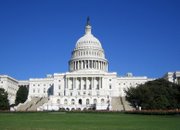

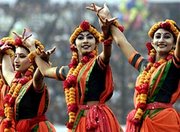


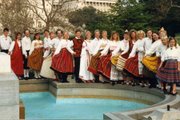

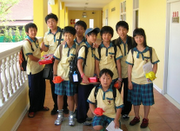

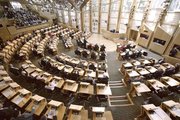


No comments:
Post a Comment